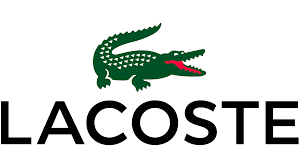React Language Training
Aprovecha el poco tiempo libre para estudiar. Askaway estará siempre disponible en todos sus dispositivos móviles.
Exam Language Training
Plan de coaching flexible desarrollado por expertos. Podrá estudiar y practicar para su examen desde todos sus dispositivos móviles.
Level Testing
Pruebas de nivel de idioma desarrolladas por un examinador oficial de Cambridge.
Translation and Proofreading
Proponemos un servicio de traducción y corrección humana rápida, profesional y de calidad.
ASKAWAY
Effective language training and development
¿Quiénes somos?
Somos un grupo experimentado de formadores en idiomas, un equipo de profesores cualificados apoyados y coordinados estrechamente por un equipo de expertos.
¿Quiénes son nuestro alumnos?
Profesionales con agenda complicada y poco tiempo libre, que necesitan flexibilidad y que quieren mejorar su nivel de idioma de una manera efectiva que cumpla con sus necesidades.
¿Las ventajas de estudiar con Askaway?
- Estudie cuándo, donde y lo qué necesite.
- Estudie con un profesor real cada vez.
¿Qué proponemos?
Askaway ofrece servicios de formación en idioma flexibles y personalizados para el desarrollo personal y profesional:
- Formación en idioma React (React Language Training).
- Formación en idioma Exam (Exam Language Training).
Le ayudamos a tratar en otro idioma y de manera efectiva con:
- Presentaciones
- Conferencias
- Reuniones
- Videoconferencias
- Viajes de negocio
- Entrevistas
- Exámenes
- Viajes personales, etc
Adicionalmente, proponemos:
- Servicio de pruebas de nivel de idioma (Level Testing)
- Traducciones y correcciones profesionales (Translation and Proofreading)
Nuestros Clientes








Últimas entradas del blog
En nuestro blog, podrá encontrar entradas varias en relación con los idiomas que no dejarán de sorprenderle!
- 29 de noviembre de 2022
Importancia del inglés para ejecutivos: consejos para aprender inglés
El inglés se ha convertido en una herramienta imprescindible en la mayoría de los empleos…
- 7 de noviembre de 2022
Estrategias para mejorar tu fluidez en inglés
¿Estás cansado de ver que no mejoras en tu speaking? ¿Quieres hablar de manera más fluida…
- 30 de septiembre de 2022
Tips para una reunión de trabajo en inglés
¿Tienes una reunión de trabajo en inglés y no sabes cómo afrontarla? Si no estás acostumbrado…



